With summer waning, I wanted to take a moment to provide thumbnail reviews of things many of you should find of interest.
DVD
 Rome – Pretty much a must-see for any fan of sword-and-sorcery or historical fiction. As far as I’m concerned, the two genres are closely related, and I’m sure a fan of either will be a fan of this.Not for the faint-of-heart due to sex and violence… but extremely well written and acted. The story arcs get more and more compelling the deeper into the series you watch. I haven’t been this caught up in a TV series since a friend loaned me the Firefly boxed set.
Rome – Pretty much a must-see for any fan of sword-and-sorcery or historical fiction. As far as I’m concerned, the two genres are closely related, and I’m sure a fan of either will be a fan of this.Not for the faint-of-heart due to sex and violence… but extremely well written and acted. The story arcs get more and more compelling the deeper into the series you watch. I haven’t been this caught up in a TV series since a friend loaned me the Firefly boxed set.
BOOKS
 Blood of Ambrose – It should come as no small wonder that I enjoyed James Enge’s first Morlock novel. I’ve been a fan of his work since his first appearance in Black Gate. Good stuff, brimming with brilliant world building, witty characters, and swordplay and foul sorcery.
Blood of Ambrose – It should come as no small wonder that I enjoyed James Enge’s first Morlock novel. I’ve been a fan of his work since his first appearance in Black Gate. Good stuff, brimming with brilliant world building, witty characters, and swordplay and foul sorcery.
Bill Ward and I are planning an in-depth look at some of the fine work coming out from the Warhammer game publisher, and I wanted to provide a sneak peek of the goodness we found within.
 Blackhearts Ominbus – I’m halfway through Nathan Long’s collection and have loved every minute of it. A dirty dozen type series in a fantasy land, with flawed but likable characters, fabulous pacing, and great action sequences. I have the suspicion that the rest of it will hold up just as well.
Blackhearts Ominbus – I’m halfway through Nathan Long’s collection and have loved every minute of it. A dirty dozen type series in a fantasy land, with flawed but likable characters, fabulous pacing, and great action sequences. I have the suspicion that the rest of it will hold up just as well.
 Eisenhorn Omnibus– Dan Abnett wasn’t satisfied with creating a fabulous lead character in an action-packed space opera; he sent him to fantastic places and provides a series of detective/investigative stories full of logical turns, surprises, and plenty of action.
Eisenhorn Omnibus– Dan Abnett wasn’t satisfied with creating a fabulous lead character in an action-packed space opera; he sent him to fantastic places and provides a series of detective/investigative stories full of logical turns, surprises, and plenty of action.
 Witch Hunter Omnibus – I finally got to read C. L. Werner’s first two Mathias Thulman books, full of Gothic menace and brooding castles. I would never have guessed that I would be rooting for a witch hunter, but Werner pulls it off, and delivers plenty of surprises along the way.
Witch Hunter Omnibus – I finally got to read C. L. Werner’s first two Mathias Thulman books, full of Gothic menace and brooding castles. I would never have guessed that I would be rooting for a witch hunter, but Werner pulls it off, and delivers plenty of surprises along the way.
GAMING
 Mongoose Games has a license for Traveller, and the core book and first supplements (High Guard and Traders and Gunboats) have been well-handled. I look forward to seeing what more they have planned.
Mongoose Games has a license for Traveller, and the core book and first supplements (High Guard and Traders and Gunboats) have been well-handled. I look forward to seeing what more they have planned.
 Cortex System Role Playing Game, from Margaret Weis games, is the engine behind their Firefly game. It’s a slim, elegant-looking system, and will be reviewed in-depth in the next issue of Black Gate.
Cortex System Role Playing Game, from Margaret Weis games, is the engine behind their Firefly game. It’s a slim, elegant-looking system, and will be reviewed in-depth in the next issue of Black Gate.
 Goodman Games has a new magazine, Level Up, that seems at least partly inspired by the original Dragon. Adventures and articles on game play and character interaction are included within. We’ll be reviewing in-depth next issue, but my initial impression is one of delight.
Goodman Games has a new magazine, Level Up, that seems at least partly inspired by the original Dragon. Adventures and articles on game play and character interaction are included within. We’ll be reviewing in-depth next issue, but my initial impression is one of delight.
Howard Andrew Jones
 I tend to go through my “to be read pile” looking for themes as an approach to wend my way through and choose what I want
I tend to go through my “to be read pile” looking for themes as an approach to wend my way through and choose what I want to attack next. These two are about the realities of war and the casualties of those who manage to survive. The first, Denis Johnson’s Tree of Smoke is a novel about the Vietnam war fiasco; the other is non-fiction, The Forever War
to attack next. These two are about the realities of war and the casualties of those who manage to survive. The first, Denis Johnson’s Tree of Smoke is a novel about the Vietnam war fiasco; the other is non-fiction, The Forever War 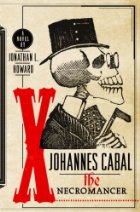 What’s the point of toiling long hours in relative obscurity for Black Gate, if we don’t pimp your new books?
What’s the point of toiling long hours in relative obscurity for Black Gate, if we don’t pimp your new books?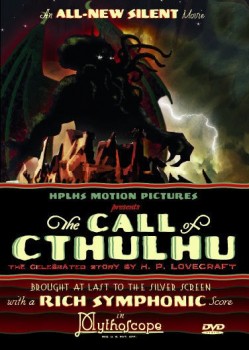 Directed by Andrew Leman; starring Matt Foyer, Chad Fifer, Noah Wagner, Ramon Allen Jr., and Ralph Lucas.
Directed by Andrew Leman; starring Matt Foyer, Chad Fifer, Noah Wagner, Ramon Allen Jr., and Ralph Lucas.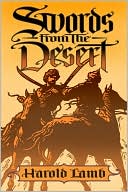 Eric Knight scooped me by breaking the news below, but I thought this was worth making a little noise about.
Eric Knight scooped me by breaking the news below, but I thought this was worth making a little noise about. Rome
Rome Blood of Ambrose
Blood of Ambrose Blackhearts Ominbus
Blackhearts Ominbus Eisenhorn Omnibus
Eisenhorn Omnibus Witch Hunter Omnibus
Witch Hunter Omnibus Mongoose Games has a license for
Mongoose Games has a license for  Cortex System Role Playing Game
Cortex System Role Playing Game Goodman Games has a new magazine,
Goodman Games has a new magazine, 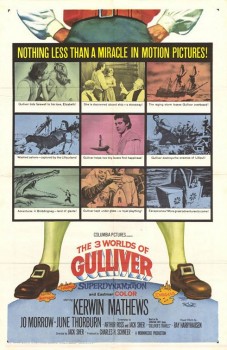 The 3 Worlds of Gulliver (1960)
The 3 Worlds of Gulliver (1960)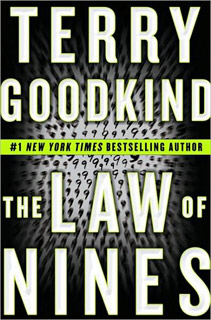 Regarding two earlier posts:
Regarding two earlier posts: